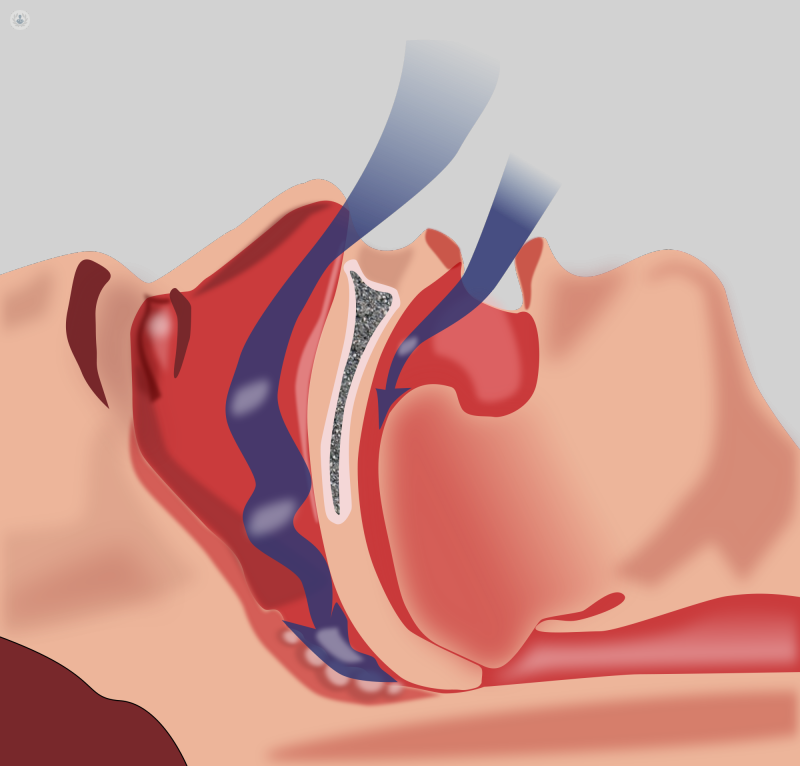Sleep apnea and snoring
Written in association with:Obstructive sleep apnea is a breathing disorder that occurs when the person suffering from sleep. The reason is that the airways are narrowed or partially blocked, causing snoring.
During obstructive sleep apnea, the muscles of the upper part of the throat relax so that air passes with difficulty through the narrow passage left closed tissues. Thus, retrieving respiration usually occurs snoring.
Breathing usually returns to normal 30 seconds later, but this pause can be dangerous and even fatal because of the consequences of lack of oxygen.
Snoring is a symptom that warns the patient suffering from sleep apnea. However, not all snorers have sleep apnea.
Causes of sleep apnea
 The causes of sleep apnea are mainly:
The causes of sleep apnea are mainly:
- Class II malocclusion, by which the lower jaw is shorter than the top.
- Deformation of the palate
- Neck too large
- Large tongue, because it can block the airway when relaxed during sleep.
- Tonsils that have grown excessively and may block the airway.
The main problem is sleep apnea happens when the patient is sleeping, so he is not aware. It has to be a close person who realizes pathology because of snoring and suggest referral system at Dentistry. Thus, lack of sleep ends up affecting those who suffer apnea and who sleeps nearby.
Apnea is the cause of many visible symptoms, especially in overweight men:
- During sleep: snoring, pauses in breathing, frequent and sudden movements, excessive sweating, shortness of breath or smothering, drooling or salivation.
- During the day: lack of concentration, memory loss, mood swings, isolation, depression, sleep at the wrong time or performing tasks such as driving, morning headache.
If sleep apnea is not associated with certain coronary heart disease which can lead to fatal consequences, and coronary arterial hypertension, arrhythmias, stroke, sudden death or myocardial infarction.


